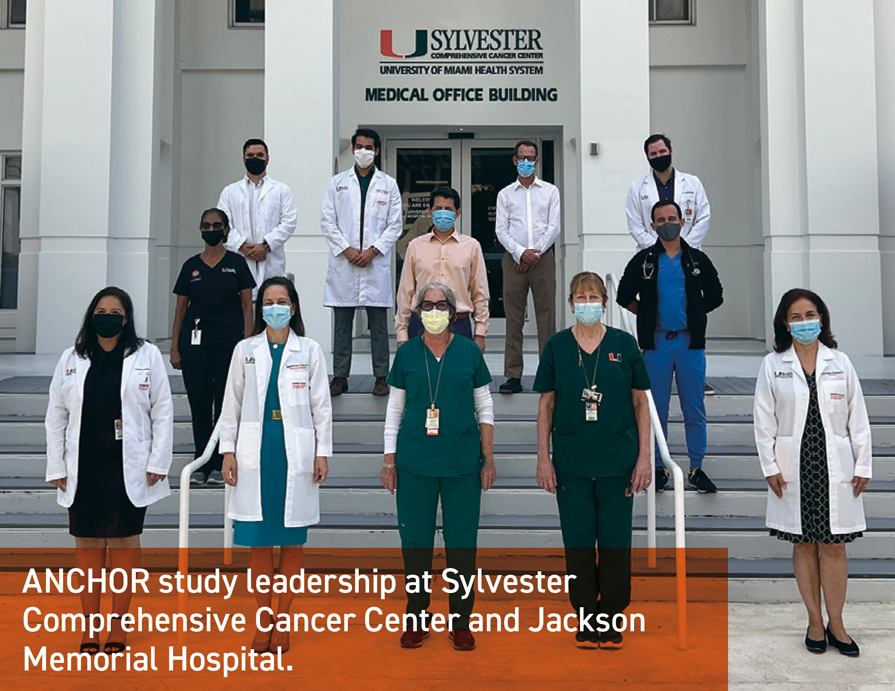Treating precursor anal cancer lesions significantly reduces anal cancer risk in people living with HIV, according to a groundbreaking study of nearly 4,500 people at elevated risk for the cancer.
“The ANCHOR study shows that what we can offer for anal canal cancer prevention is a similar algorithm to the standard of care for cervical cancer prevention,” said Isabella Rosa-Cunha, M.D., principal investigator of the ANCHOR study sites at Sylvester Comprehensive Cancer Center and Jackson Memorial Hospital and associate professor of infectious diseases at the University of Miami Miller School of Medicine.

“While anal cancer is not as common as other cancer types — it affects approximately 2% of the general population — it is much more common in some patient populations,” she explained. “These include individuals living with HIV, women with a history of vulvar or cervical cancer, men who have sex with men who are HIV-negative, and men and women who have immunosuppression for reasons other than HIV infection.”
ANCHOR changes the landscape of cancer prevention, offering a new opportunity to reduce the burden of anal cancer globally, according to Erin Kobetz, Ph.D., M.P.H., vice provost for research and scholarship and associate director, population sciences and cancer disparity, at Sylvester.
“We are so proud of Sylvester’s role in this trial, the leadership of Dr. Rosa- Cunha and the commitment of study participants to making this discovery possible,” Dr. Kobetz said. “As a National Cancer Institute-designated cancer center, Sylvester prioritizes research studies, such as ANCHOR, where the focus of inquiry aligns with our local cancer burden and the unique needs of the multicultural community that we serve.”